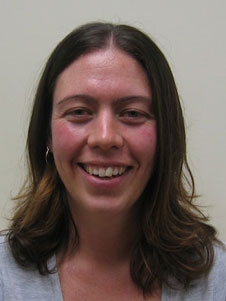 Friday 7 July 2017 9:14am
Friday 7 July 2017 9:14am
Dr Toni Pitcher
Numbers of people with Parkinson's disease will double over the next 25 years, according to a new study from the University of Otago, Christchurch's specialist brain research group.
Today there are at least 9500 people in New Zealand living with Parkinson's disease. The study predicts the number will double to 17,500 by 2035, and increase to 24,000 by 2068.
The research was done by the Christchurch-based New Zealand Brain Research Institute (NZBRI), which includes clinicians and brain imaging specialists.
Author Dr Toni Pitcher says she and the team wanted to provide robust data on future need by determining numbers of people with Parkinson's disease will change in the face of an ageing population. They analysed pharmaceutical records relating to the condition to calculate numbers.
Dr Pitcher says as well as being able to predict future need, the study team observed an interesting pattern of disease in older age groups. It was commonly thought the risk of getting Parkinson's increased as age increased. But the study team found risk increased exponentially until age 75, peaked at age 85, then dropped off sharply after that. Dr Pitcher says this means, according to population data, the rate of increase in the number of people with Parkinson's will slow down as the proportion of the population reaching the oldest old age range (80+ years) increases.
Professor Tim Anderson, a Christchurch neurologist and part of the NZBRI study research team, says the study is crucial in planning for the future and ensuring appropriate resources are assigned to treat and support those with chronic and progressive neurological disorders of ageing, such as Parkinson's disease.
The study was funded by the Neurological Foundation of New Zealand.
For further information, contact:
Kim Thomas
Communications Manager
Txt: 027 222 6016
Email: kim.thomas@otago.ac.nz
A list of Otago experts available for media comment is available elsewhere on this website.
Electronic addresses (including email accounts, instant messaging services, or telephone accounts) published on this page are for the sole purpose of contact with the individuals concerned, in their capacity as officers, employees or students of the University of Otago, or their respective organisation. Publication of any such electronic address is not to be taken as consent to receive unsolicited commercial electronic messages by the address holder.